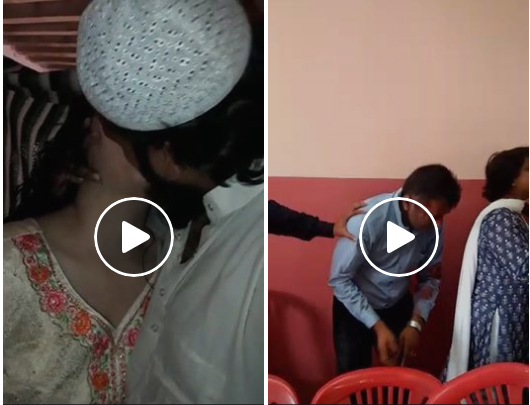(CNN)On Monday, Pakistan's Supreme Court heard the final appeal of Asia Bibi, a Christian woman sentenced to death for blasphemy in November 2010.
The verdict, not yet issued, could well signal if the hardline Islamists, who seek to create a full-blown theocracy, are gaining influence throughout the country and helping to shape its future.
Bibi's case began on June 14, 2009, when an ordinary altercation between women working in a field in an area north of Lahore turned into a feud over their faiths. Three women did not want to share a cup of water with Bibi because she was Christian and they were Muslim. After a heated argument, the three women trooped off to complain to the village cleric, claiming she had sullied the name of the Prophet Mohammed.
Rafia Zakaria
As Bibi's lawyer, Saiful Malook, argued on Monday, the legal case against her is weak at best, featuring blatant contradictions between witness statements. The cleric, who actually registered the case and made the allegations against Bibi, was not even present when the altercation between the women took place, and he did not have permission from the appropriate officials to register the case. These legal and evidentiary issues would likely be determinative in any other case, but in this one they may have little impact on the outcome.
The murky facts of Bibi's case may make it hard to discern whether the case, filed at a time when the region was seeing an increase in recruitment by hardline Islamists, was filed at the behest of a particular group. It is known that in the decade since then, hardline groups -- the Tehreek-e-Labbaik in particular -- have gunned down politicians and lawyers who have dared question the validity of the blasphemy law or championed the cause of blasphemy defendants.
In January 2011, a little over a month after the trial court sentenced Asia Bibi to death, Salman Taseer, a Punjab governor, was gunned down by his bodyguard, Mumtaz Qadri, because he had visited Bibi in prison and questioned her conviction. Qadri, a member of Tehreek-e-Labbaik, said he had been protecting the honor of the prophet and that he had killed Taseer because of his support for Bibi. Qadri himself was executed in 2016, an event which brought out thousands of mourners affiliated with various hardline groups to the street.
Pakistan's blasphemy laws persecute the weakest of the weak
Pakistan's blasphemy laws persecute the weakest of the weak
These are not the only deaths. In March 2011, Pakistan's Federal Minister of Minority Affairs, a Christian man named Shahbaz Bhatti, was gunned down after calling for reform of Pakistan's blasphemy law. In 2014, gunmen barged into the office of Rashid Rehman, a human rights lawyer who had been representing another blasphemy suspect, and killed him.
Pakistan has never executed anyone convicted of blasphemy. Until very recently, Pakistan was not executing many people at all. But a moratorium on the death penalty was lifted in 2015, reflecting Pakistan's rightward political swing.
According to Amnesty International, though there was a 31% decrease in executions from the previous year, Pakistan still executed 60 people in 2017, while nearly 7,000 people languished on death row. When this inclination to execute is combined with the pressures of groups like Tehreek-e-Labbaik, and the fact that Bibi is a Christian woman in an increasingly misogynistic and xenophobic atmosphere, there seems almost no cause for hope.
But it doesn't have to be this way. The three justices who heard Bibi's final appeal could do the right thing, take note of the many holes in the case, the baselessness of the allegations themselves, the contradictions between witness accounts and exonerate a poor woman who has been wrongfully accused and imprisoned.
Under Imran Khan's leadership, what does the future of Pakistan look like?
Under Imran Khan's leadership, what does the future of Pakistan look like?
The military, which has worked so diligently to eradicate terrorism in Pakistan, could crack down on groups like Tehreek-e-Labbaik that make ordinary Pakistanis pawns in their game of blood and terror. They could promise added protection to all involved in the case and deploy forces in sensitive areas of the country, such that Tehreek-e-Labbaik and their threats of violence cannot materialize.
Pakistan's new administration, led by the swashbuckling former cricketer Prime Minister Imran Khan, could also take a stance against the intimidation of Tehreek-e-Labbaik, whose leaders have demanded that Khan fulfill his promises to make Pakistan an "Islamic state" and that "Asia Bibi should be hanged keeping international pressure aside." Khan could respond to this by noting that Pakistan is already an Islamic Republic and that, according to the Quran, Pakistan cannot execute an innocent woman for any crime.
Instead of snubbing the international community, one that Islamists see as impinging on Pakistan's move toward a full theocracy, Khan could emphasize the need to embrace it and to work with it. In other words, Khan could choose to stand with the innocent woman instead of the rabid and bloodthirsty extremists.
Saving Bibi need not only be a Pakistani campaign. The Supreme Court of Pakistan, likely fearing violence by hardliners, has instructed Pakistani media to refrain from discussions of Bibi's case until the verdict is issued. This places responsibility on international media and human rights groups to step up their efforts and fill the vacuum.
The Supreme Court of Pakistan would never admit to being permeable to international campaigns for a particular accused, but judges exist in the same larger political context as all the rest of us. A groundswell of international protest and attention, via media and social media, could drown out the venal voices of hardliners demanding death and replace them with activists insisting on life.
The verdict is not in yet on Bibi's case; there is time still to write and tweet and petition. Global attention may well add up to the difference between life and death for a woman sitting alone in a cell in a Pakistani prison.



